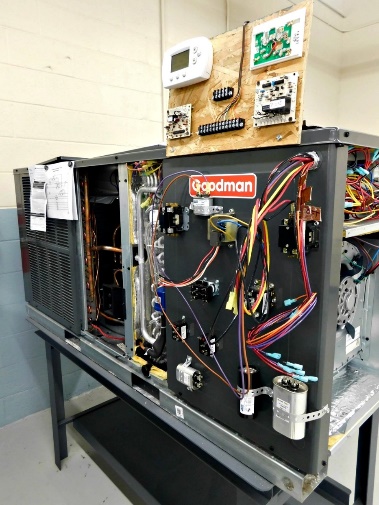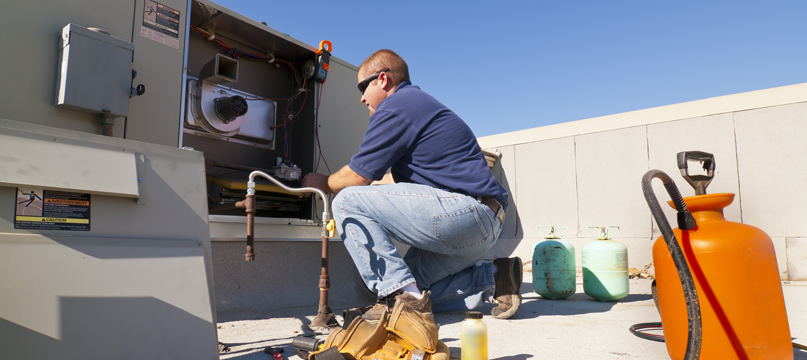Why Should You Become A HVAC/R Technician?
 Why Should You Become A HVAC/R Technician?
Why Should You Become A HVAC/R Technician?
Let us start with some basics. HVAC/R is the abbreviation for Heating, Ventilation and Air Conditioning. HVAC/R technicians repair, install or service the heating and air conditioning systems in commercial or residential institutions. HVAC/R is a very hands-on career. You will be using your hands every day when trying to determine why Mrs. Johnson’s air conditioner picked the hottest day of the year to go on the blink, or why the animal shelter lost their heat on the coldest day of the year. Aside from the ins and outs of commonly-used HVAC/R equipment, technicians also need to know basic skills like problem solving and oral communication. After all, customers want to know what is wrong with their system and you will need to be able to tell them how you are going to fix it. Some additional things to consider if you are exploring becoming a HVAC tech include the following:
1. Job Growth
Put on those shades because the future is bright for HVAC/R technicians! According to The Bureau of Labor Statistics, the HVAC/R industry is expected to grow 14% from 2014-2024. With all of the new technologies such as touch screens and smartphone integration, new and more efficient HVAC models are coming to the market. Customers are now replacing their old, large HVAC/R equipment and upgrading to the newer, more efficient models.
2. Opportunities
For skilled HVAC/R techs, there are opportunities all over the United States. As a HVAC/R Tech, you are typically working in the field at a number of sites– this is not the field to go into if you want a 9 to 5 desk job. Technicians could go from working in customers’ homes one day to working in schools, offices, hospitals or factories the next day. Almost every day you are working in a new place with new problems to solve and equipment to fix. It is a rewarding feeling to have a satisfied customer let your boss know how satisfied they were with your work.
3. Education
a. HVAC/R Education: courses include installation, maintenance and repair of HVAC/R systems.
b. Training in HVAC/R has a strong focus on industry HVAC/R safety practices.
c. There is no need to sit in a classroom for a year before getting to work with the HVAC/R equipment. At Stautzenberger College, you could earn your Diploma as an HVAC/R Technician in as little as 40 weeks. We educate and train our students so they are ready to enter the work force immediately after graduation.
4. Safety
Fair warning - HVAC/R Techs do have a higher rate of injuries than the average occupation. Some injuries could be muscles strains from handling the large equipment; some are electrical shocks and burns. Just remember to use the safety protocols when on the job in the HVAC/R field! Stautzenberger College teaches you best practices in keeping safe on the job.
5. Dedication
Advancing in the HVAC/R field requires experience and multiple certifications. Companies are always looking for valuable employees who want to continue learning more about their field of work!
a. The more HVAC/R certifications you obtain, the more qualified you are for a more advanced HVAC/R job.
b. Taking additional HVAC/R training and HVAC/R certifications will allow you to take your HVAC/R career to the next level.
If you think a career as a HVAC/R tech is right for you, Stautzenberger College offers HVAC/R programs at both our Brecksville and Maumee campuses. A full-time student can typically complete the program in 40 weeks.
 Written by: Jordan Thomas
Written by: Jordan Thomas
Jordan Tomase has been a member of the Stautzenberger family since February 2015. She enjoys her role as the Community Outreach Coordinator and loves representing her company throughout the Toledo community. Her passions are public relations and social media. Jordan loves learning new things every day to improve herself as a team member to the Stautzenberger family.
#college #hvac #hvactech #hvaclife #sctoday #skilledtrades

